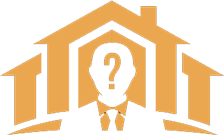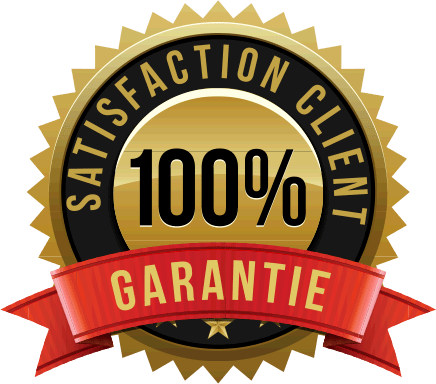
Low interest rates in many parts of the country have spiked up home sales, with some homes selling as soon as “for sale” signs are put up.
First time home buyers are taking advantage of this frenzy and experienced buyers are not immune to paying more than they planned for just to get the house of their dreams.
It is no secret that in the competitive real estate market, bidding wars can make or break dreams. The best way to prevent paying more than you can afford is to BE PREPARED.
Before even going to an open house, you need to know how much you can afford to pay for your mortgage.
DETERMINING YOUR FINANCIAL CAPACITY
When you are looking for a house to buy, it is important that you like it enough to want to live in it for at least 5 years.
But it is equally important that you can afford to buy and maintain it.
It is critical to know what you can afford. Unfortunately, many Canadians don’t have a clear idea of what they can afford and this gives rise to some disadvantages.
If you miscalculate, you could miss out on great properties you can buy because you underestimated your financial capacity. If you overestimate, you could drastically affect your current lifestyle.
You also need to understand the additional costs related to the purchase and maintenance of your property.
Before you scratch your head, here are a few rules of thumb you can use.
To do the math, the easiest way to calculate the most reasonable price range you need to be looking at for buying a house is to multiply your annual salary 3 times to get the minimum range and 4 times to get the maximum range. Therefore, an individual making $80,000 a year should look at homes costing $240,000 to $320,000.
You can further lower this amount by considering your debts to come up with a more realistic mortgage payment. You can factor in these costs to see what your financial position will be like.
- Your monthly housing costs, including taxes, monthly mortgage payment, heating and other utilities, should not go beyond 32% of your gross household income.
- You also want to make sure that you factor in your monthly debts such as car and credit card payments, which should not exceed 40% of your monthly household income.
What Can You Afford?
Once you start shopping for a home, you’ll need to know the mortgage and the home price you are likely to qualify for. To know what you can afford, lenders look at the following criteria:
- ✓ Down-payment
- ✓ Debt to service ratios which is determined from your income, monthly costs to owning the home, and monthly debts
Since your down-payment will be at least 5% of the home price, this will limit affordability. For example, if your down-payment is set at $15,000, the home you can afford notwithstanding your debt service ratio is $15,000 / 5% or $300,000.
The minimum down-payment is higher for a home price that is over $500,000. Home prices that are over $1,000,000 require a 20% down-payment.
There are online mortgage calculators to help you crunch the numbers. You may be surprised at the amount you obtain. You may find that you could get pre-approved for a larger mortgage than you first thought.
But again, you need to be careful about over-spending on a home as you wouldn’t want to feel you can’t afford your favorite Starbucks coffee after you move in.
You can also get pre-approved for a mortgage even before you start shopping for a new house. This makes a lot of sense to ensure you are ready to make an offer to purchase once you find the house of your dreams.
THE COSTS RELATED TO BUYING A HOUSE
While the down-payment and mortgage will cover the sale price of your house, there are other costs involved in buying a home.
At the beginning of the process, you could pay for:
- Property valuation fee
This fee is for determining the lending value of the property for purposes of mortgage. - Home Inspection Fee (may not be applicable if you are buying a new property)
While this is not mandatory, it evaluates the structures of the home and gives the buyer a written report which can be made part of the Offer to Purchase. - Property survey
This fee is to determine the measurements of the land and boundaries and positions of major structures or encroachments on the property. - Land Transfer Tax (varies based on province)
- Legal fees and other related expenses
These fees also vary per province and subject to HST or GST. - Home Insurance premiums
If you have a mortgage, you are required to have home insurance. This is protection for your home and its contents. - Moving expenses
Whether you are moving a block away or from another city, you will be spending on moving expenses when you buy a new home.
Further, keep in mind that you will be spending on annual maintenance and repairs of your new home. This is typically 1 to 2% of the purchase price and depends on the age of the property.
There is no fun in buying a house you can’t really afford. You have to buy a house that you really like and love its price, too.
6 STEPS TO STOP YOU FROM OVER-SPENDING ON A HOME PURCHASE
Buying a house is pretty exciting and you can easily get carried away.
If you overspend on a house, its financial repercussions can last 20 or even 30 years.
Here are some tips that can help you avoid overspending before you sign on the dotted line.
- Do the math. Work out how much you could borrow and what your monthly repayment will be.
- Take all other costs into account such as repairs, maintenance, taxes, etc.
- Create a budget to get your complete financial situation. Account for all the money that goes in and out each month. By making a plan and sticking to it, you can get a better understanding of your mortgage repayments and what money you have left to spend each month.
- Research before you plan to buy. Hook up with a reputable and experienced real estate agent to benefit from his knowledge of the market and get access to desirable listings within your price range.
- Get mortgage pre-approval. It is always better to be ready with your financing so you are set to negotiate with the seller.
- Plan ahead. Life is always changing and it is best to be prepared for any surprises such as a new baby or a new job. Always plan for a change in circumstances when you buy a home.
REASONS IT PAYS TO HIRE A BUYER’S AGENT TO BUY A HOUSE
The bottom line is that when you have your own agent as a buyer, you have someone on your side working to get what you want.
If you contact a seller’s agent directly, you will be disclosing information such as your budget, reason you want the property, how much you qualified for your mortgage. The agent can divulge this information to the seller and it can work in their favor when you negotiate the purchase price.
In addition, a buyer’s agent can:
- Identify desirable neighborhoods where properties within your budget are available
- Help you to determine what you can afford to buy
- Accompany and assist you in house showings
- Keep you updated about the progress of the negotiation or the sale
- Negotiate the price and any concessions you want from the seller
- Refer you to professionals you require for the purchase of your house
- Give you valuable advice about the market and the real estate process
Whether you are buying your first home or your third, there is always something new to learn about every home.
You can avoid making costly mistakes when you have an experienced and reliable real estate agent working for you. Even better, you don’t pay a buyer’s agent any commission because it is paid for by the seller.
Would you like to start scouting for the best houses for sale today? Start your search for the best real estate agent to help you find your dream home. Compare 3 real estate agents using our quick online form to receive proposals from qualified and experienced real estate professionals.
We can help you find the best property for sale today so you can achieve home ownership the sure and easy way.







